10 Ways To Reduce Your Commercial Kitchen’s Energy Bills
Sustainability and energy saving are more than just buzzwords. More and more companies are discovering these switches have multiple benefits, especially for commercial kitchens.
By implementing eco-friendly appliances and processes, you’ll quickly see a reduction in energy bills, operational costs and your impact on the environment, as well as streamlining workflow and appealing to existing and new customers.
How To Reduce Your Commercial Kitchen Energy Consumption
Here at Midland’s, we’re always looking at ways we can help businesses be more energy efficient and this blog pulls out 10 energy-saving tips that could work for your commercial kitchen.
1. Where To Start?
Reviewing your commercial kitchen energy impact is something you know you need to act but it can be quite overwhelming. By understanding your kitchen’s current energy performance, you can identify where to make changes and prioritise. To get started, follow these steps:
- Track your equipment’s performance
- Monitor your equipment’s energy use
- Compare this to your kitchen’s footfall – does it match your busiest times?
- Review your energy bills
- Ask your team how they help reduce energy wastage
- See if you can switch to energy-efficient equipment such as combi ovens
- Look at small changes like energy-saving kettles, plugs or lights
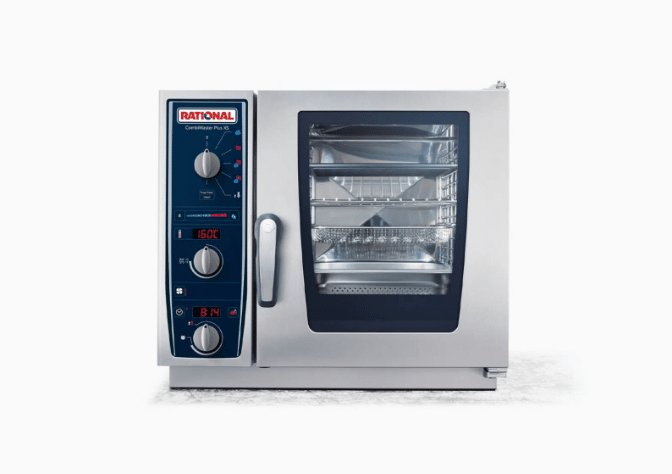
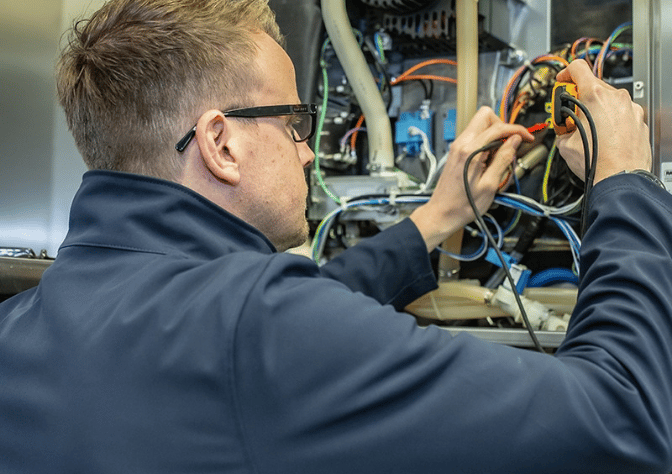
2. Maintenance and Cleaning Plans
This is an obvious action but one many kitchens brush under the cupboard. Implementing regular cleaning and maintenance of your kitchen appliances ensures your team’s up to date with its condition and regular performance. They’ll be able to spot early signs of trouble and escalate this before it results in costly repairs or overuse of energy. It’ll also elongate the lifespan of your equipment, saving you money in the long run. For more information, view our Preventative Maintenance Plans.
Read our top cleaning tips from our daily commercial kitchen maintenance checklist.
3. Do You Have The Right Refrigerator Doors?
Fridges and freezers use up to 30% of energy and are essential to the operation of your kitchen. They’re the one appliance in constant use, with their doors being opened and closed countless times a day. To help reduce energy loss, consider alternative refrigerator doors such as:
Frameless Doors – this is a great way for staff and customers to view the content inside without having to open the doors. Meaning they use less energy (up to 55%), maintain a consistent temperature and reduce their impact on the environment. They’re also lighter and easier to clean.
Double Doors – if your staff know how your fridge is stacked, they only need to open one side rather than the whole unit. This contains cooler air within the unit and wastes less energy. Just check your kitchen has adequate space in front for both doors to be opened.
Stable Doors – similar to double doors, stable doors mean only a smaller section of your fridge needs to be opened at any time. Again, this contains cooler air within the unit and less energy is consumed.
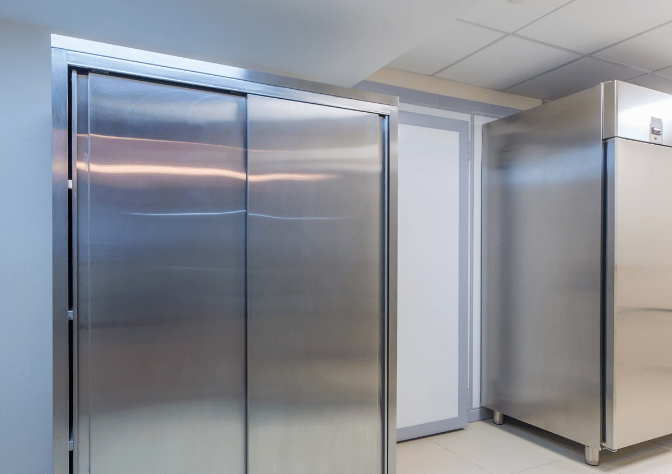
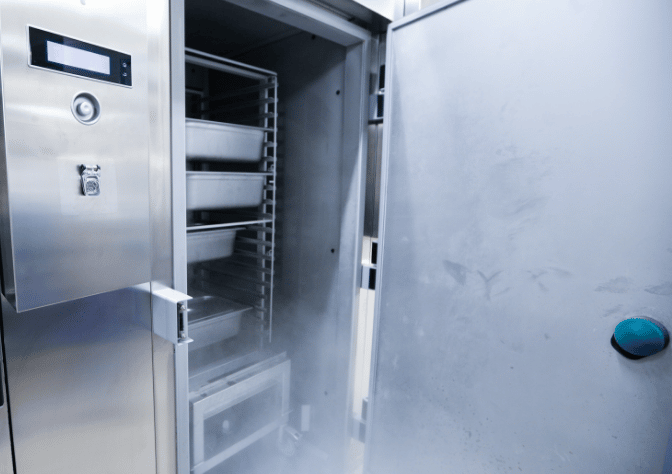
4. Secure Your Seals
Refrigerator seals often go unnoticed but if they’re ripped or broken, then this is where a lot of energy is lost. Broken seals allow cool air to escape as well as warm air to seem in, meaning the unit works harder to maintain a cool temperature. Repairing a seal (or gusset) is much cheaper than replacing a whole refrigerator. Signs to look out for include:
- The temperature inside not cooling down quick enough
- Food spoiling
- Fridge door not shutting correctly
5. Use Your Space Wisely
Your commercial kitchen is reliant on its refrigerator, so you need to ensure it functions effectively. Simple measures such as not overfilling or underfilling your refrigerator are easy ways to stop your fridge from using extra energy to maintain its optimum temperature. Also avoid placing it near hot appliances such as ovens, where it’ll need to use more energy to stay cool.
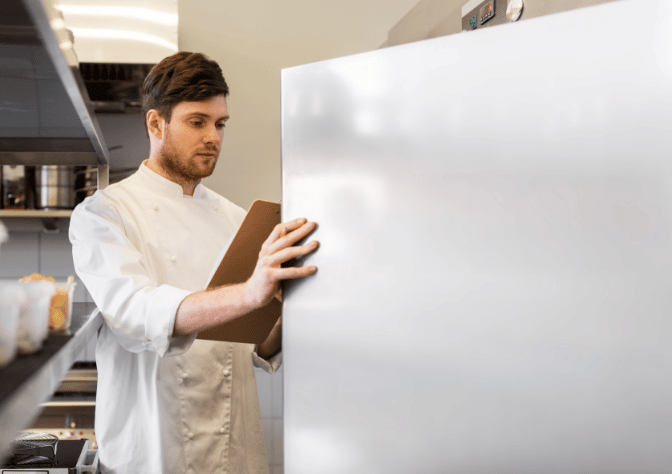
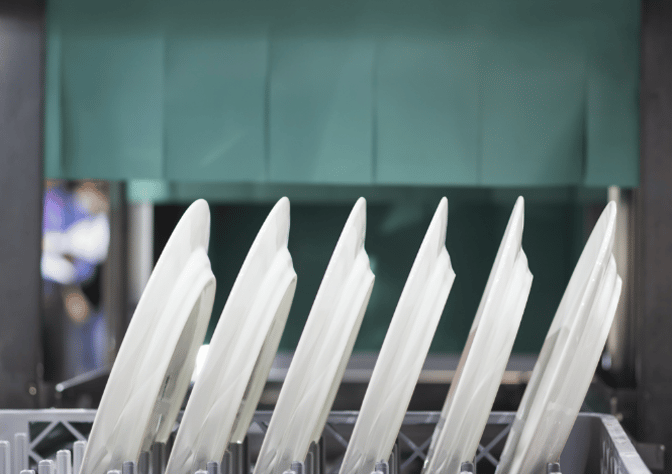
6. Load Up Your Washing
Glass and dishwashers are another important part of your kitchen when performing correctly. Always make sure that your washer is full and stacked suitably; if you cram too much in, it won’t clean thoroughly and may have to be washed again – using more energy. Make sure this appliance is switched off at the end of the day too.
7. Don’t Just Standby
Appliances on standby drain a lot of energy when they don’t need to. Items such as food processors, blenders and even microwaves which aren’t in use all the time should be switched off, especially at the end of every shift. This small change can save up to 10% on your energy bills.
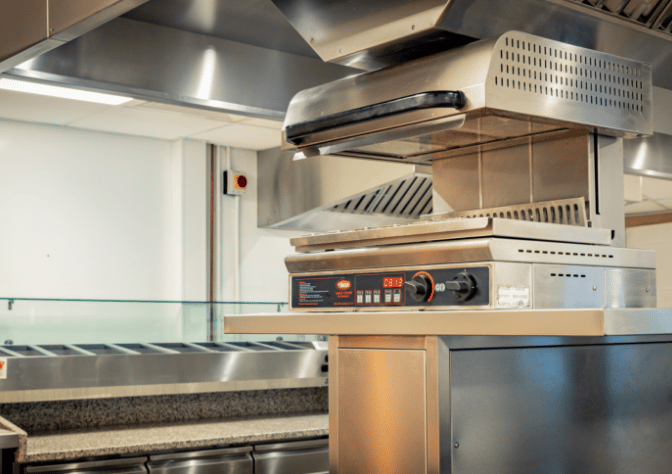
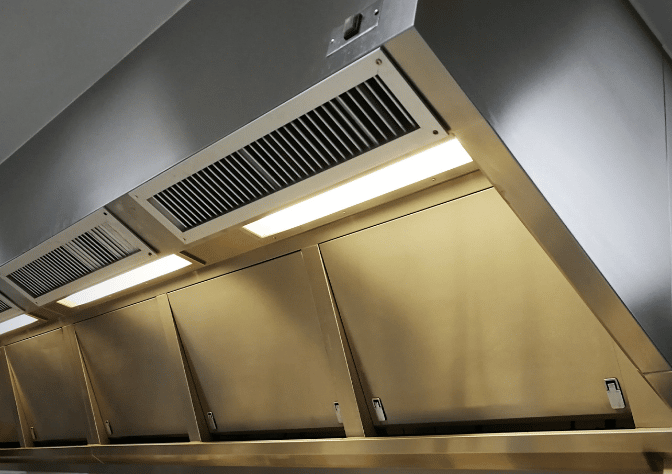
8. Bright Ideas
Another quick and easy switch is swapping your lights to energy-efficient bulbs. Although they may seem a costly change now, they’re a long-term investment; LED lights use up to 90% less energy and last up to 25 times longer than the standard Incandescent option.
9. Lower Your Thermostat By 1 Degree
Reducing your kitchen’s temperature by as little as 1 degree can save up to 10% on your heating energy bills. Busy commercial kitchens create a lot of heat from staff, customers and appliances in use. By reducing the temperature slightly, you’ll actually create a more pleasant environment for everyone.
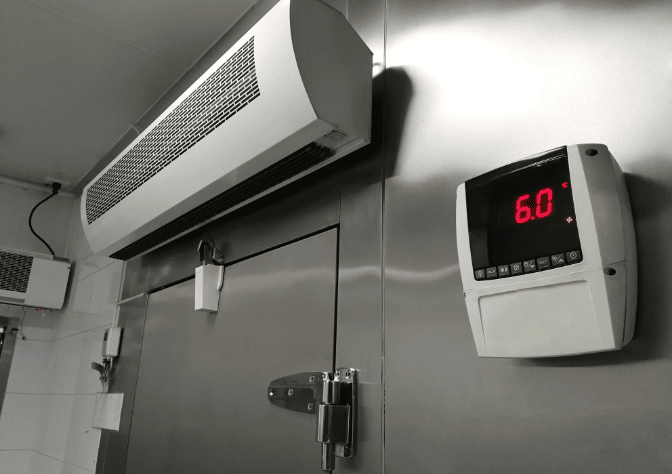
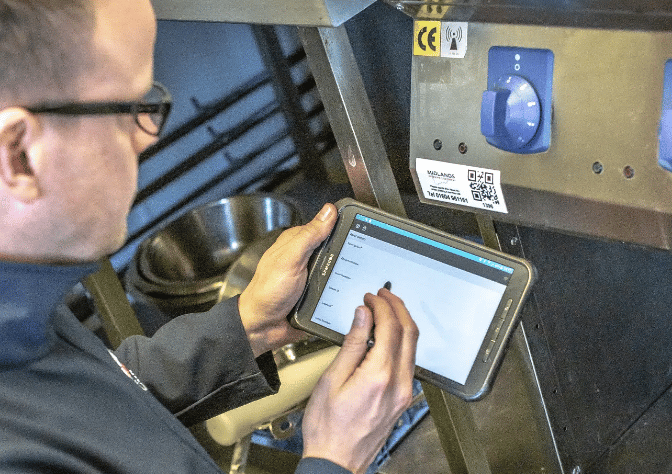
10. Knowledge Is Power
A commercial kitchen is only as good as the staff running it. By investing time (and energy) into educating them on ways they can actively help reduce their impact on the environment, these changes will become part of their routine. Actions you can take to support your team include:
- Regular training on equipment
- Cleaning and maintenance plans
- Add helpful signs and instructions
- Lead by example
How Midland’s Can Help
Whether you’re looking to update your equipment with a more energy-efficient option or need support with regular maintenance of your existing appliances. Get in touch to see how we can help reduce your energy consumption.

Share This: